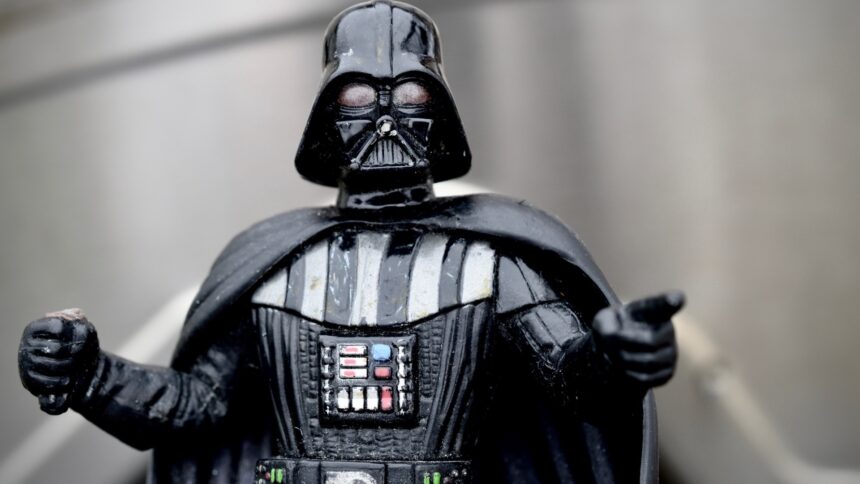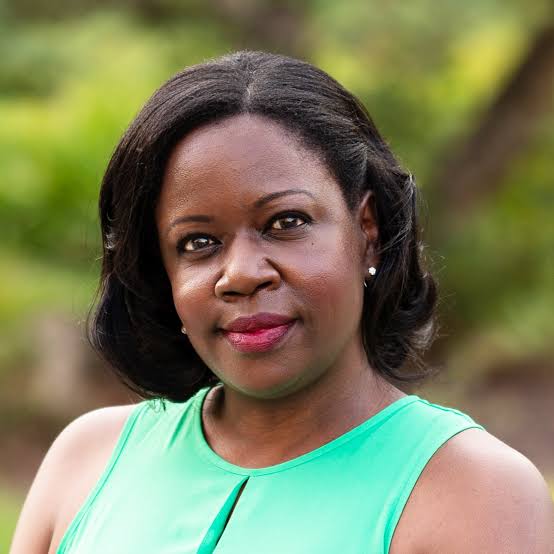Crafting My Sweet Spot….Writing the Villain
By Yasmin Angoe | November 7, 2023 |
Do you have a writing sweet spot? The part of your writing that you just love to craft and bring to life to the reader. The place where you feel most at home and brings you joy when you’re deeply mired in it? Not too long ago, I wasn’t sure what my sweet spot was. I thought the overall joy of writing was enough for me, that there wasn’t one aspect of it in particular that I enjoyed more than everything else. But then people started asking me to present at workshops and conferences. There was one topic that kept creeping up in my mind. I thought back to a bunch of emails and social media comments I’ve received since Her Name Is Knight came out, passionately remarking about the characters in my book, especially the villains. Those visceral reactions to my characters, coupled with the presentation topic that nibbled at the corners of my mind coalesced together to one solid conclusion. My thing must be writing characters, but especially the bad ones.
I asked myself what it was about the villains, and characters in general, that brought me such glee and made readers reach out to tell me how they connected to them—or wanted them to die in a painful and horrible death. I went on to put my Power Point together, and I presented it with such gusto that by the time I was done speaking for an hour, I knew definitively that my sweet spot, what I loved the best about writing, was crafting the so-called villains.
I’m not evil. Let me put it out there for my religious family members. I’m not living vicariously through these villains or trying to kill people I don’t like through my characters. I like justice and get riled up when innocents are mistreated and abused. So, I’m not an undercover villain. But damned if I don’t love writing about one, making a character who gets down deep…to the reader’s very soul.
If I think back to, I see I’ve always been curious about character. What makes a person do horrible things. What motivates them. They can’t be all bad all the time. They are just like the heroes they fight (or should be): complex, fearful, wounded. Something has turned them this way and I have always aimed to figure out what. And because I believe that no matter the type of story, fiction or not, the characters on the page are what make the story invigorating. They bring the plot to life. If there aren’t interesting and engaging characters to manipulate reader emotion and drive the story in ways that make sense, then the story won’t land for your readers.
When I’m reading a book, the first thing I’m looking for is to be grounded in the character. When I’m writing, I have to connect with them in some way, even the minor ones. It takes me a while to fully realize a character and what makes them tick. Not every character who does wrong is a villain, and not every good guy is a hero. The labels of “good” or “bad” can switch around quite frequently.
Everyone has a story. Even the bad ones. Everyone has a reason for doing what they do, and it’s the figuring that out and penning it in a way that is compelling to the reader that is my love language. I don’t try to get the reader to root for what the antagonist does to achieve their goals. But I wonder if I stripped the villain’s motivation down to its barest level, the reader might understand what drove that “villain” to achieve those goals.
Don’t root for the method villains take to get what they want. Don’t root for their success because they’re, well, villains. But do create villains that are layered and complicated and make the reader question why. I want to write my bad folks in such a way that the reader must root for their downfall but can see, if not relate a teensy tiny bit, why that baddie turned out the way they did.
We don’t need to make excuses for our villains, especially if they’re really vile and do unspeakable things to other characters. But in creating that vile character, I’m going to provide a dynamic personality, a motivation that is wrapped tight in all the layers of their bad choices and horrible behavior.
Our readers want to be entertained, and it’s up to us writers to bring that entertainment with characters who resonate with them in ways they can’t even explain. Even if they’re the villains. Maybe especially if it’s them. I think that’s a good thing…or maybe a bad one. But I leave that up to you to decide.
Who’s your favorite villainous character? Why do you love them? If you write villains in your own fiction, how do you approach crafting them? The floor is yours.











Hi Yasmin, interesting post, which made me ask myself if I have a villain in my current novel. And how would a reader of any novel describe a villain. In our modern culture, we don’t need a battle, a gun, a time period when this character is planning something evil. If my character Jude is evil or a villain, it is because of her negative and weighted background. It is become she stumbles upon a opportunity she knows is WRONG, but she goes ahead regardless, she kidnaps a child. Now she is embroiled in more and more wrong actions to make this work keep the child, hide away. I think in our modern culture that is often how evil grows and spreads. One mistake…and the rest is about the cover-up, the ability to confess, to be honest with one’s actions. Thanks again for your thoughts today.
Wonderful post, Yasmin.
When I wrote A Keeper’s Truth, I already had the outlines for books two and three in my head. The ‘bad guy’ played an important role in books two and three but was behind the scenes in book one. So when A Keeper’s Truth was published, the ‘bad guy’ seemed relatively underdeveloped. While the book was a success and even won awards, my portrayal of the main antagonist always irked me immensely.
Ah, the stuff we learn on our journey of the craft. LOL.
Three books later, when writing GOT (Gift Of Travel), I was determined to take a deep dive into my ‘bad guy’ and ensure she was layered as much as my protagonist, right from the get-go. I suspect this came across to the reader since many suggested I write an entire book based on my antagonist’s backstory. Maybe, someday. LOL.
I learned to love my ‘bad guys’ despite their flaws. They are, in theory, people too.
Hugs,
Dee
Thanks for putting a spotlight on villains and villainy. It is forcing me to think more deeply about my own villain, his love of power, how he’s able to use people. I’m still not sure I know why he’s like this and I’m not sure I’ll ever be able to plumb the depths of his character. Perhaps I’m not ready at this time to go into the darkness. But it does fascinate me how good people end up making terrible choices, how they justify it to themselves. I remember reading that the villain in a story is the hero of his own. And these are the most frightening people, the ones who think they’re doing a great good. Sometimes you can see through the linguistic gymnastics.
I was reminded of Solzhenitsyn’s observation that the line between good and evil runs through the human heart…all of them. Here’s the exact quote: “The line separating good and evil passes not through states, nor between classes, nor between political parties either — but right through every human heart — and through all human hearts. This line shifts. Inside us, it oscillates with the years. And even within hearts overwhelmed by evil, one small bridgehead of good is retained”.
My favorite villain is The Talented Mr. Ripley. So masterfully done.
I agree strongly with Vijaya’s comment that the villain is the hero of his or her own story. I love getting into their heads as they justify their ghastly plans and tell the hero (they always have to) all about it.
Without a well-written villain, you can’t test character to the breaking point. My villain feels utterly justified in her plans – “he would thank me if he knew” – and yet she knows perfectly well she can’t let him find out.
The irony: she is ultimately responsible for him discovering who he wants most – and getting her. The villain’s right – he didn’t like being manipulated – he can forgive some things, never others. Does she really still have a chance?
You have to read to the very end. And pray.
My favorite villainous characters are those that have a dark side equal to the light in them, the antihero.
My anti-heroes are always struggling to control that dark side in them that wants to take over, while facing malignant narcissists, psychopaths and sociopaths, so evil, the anti-heroes, who are the main POV characters in my novels, look so good, readers forgive them for the times they cross the line.
Thanks for the great insights, Yasmin, and everyone else for the insightful posts. I’m not a fan of thrillers, but I enjoy a strong antagonist in any story, including the most superficially quiet story dwelling on relationships, family, friendships, personal growth, etc., where a “villain” who does “terrible things” would be completely out of place. Without a strong antagonist — which occasionally might be situational rather than an individual, such as coping with isolation during a pandemic, hmmmm — any story falls flat to me. OK, I’m going to dis a master again, this time one of my favorite writers, Ann Patchett. Here goes: I enjoyed Tom Lake a lot, beautifully written, fascinating backgrounds, both of them, interesting sympathetic characters, but in the end… blah. Everyone, even the somewhat trouble-making lover/antagonist, was just too sympathetic, too basically good to provide enough spark to a nice story with lots of nice, loving characters and a twist at the end. Patchett’s craft carried it, but for me, no character was strong enough in a negative way to make a compelling story. My WIP doesn’t have a truly evil character, but it does have one very manipulative, ambitious person who manages to spark a lot of conflict, and one other who lashes out from loyalty and grief to do quite a bit of damage — so I hope, ultimately, if I ever finish this book, that it will live up to my own standards!